Filter by
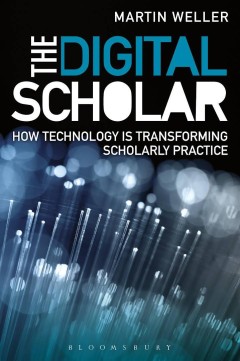
The Digital Scholar : How Technology is Transforming Scholarly Practice
While industries such as music, newspapers, film and publishing have seen radical changes in their business models and practices as a direct result of new technologies, higher education has so far resisted the wholesale changes we have seen elsewhere. However, a gradual and fundamental shift in the practice of academics is taking place. Every aspect of scholarly practice is seeing changes effec…
- Edition
- -
- ISBN/ISSN
- 9781849666268
- Collation
- viii, 200p.
- Series Title
- -
- Call Number
- 371.344 WEL d
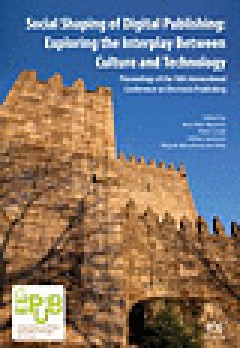
Social shaping of digital publishing: exploring the interplay between cultur…
The processes and forms of electronic publishing have been changing since the advent of the Web. In recent years, the open access movement has been a major driver of scholarly communication, and change is also evident in other fields such as e-government and e-learning. Whilst many changes are driven by technological advances, an altered social reality is also pushing the boundaries of digital …
- Edition
- -
- ISBN/ISSN
- 9781614990659
- Collation
- -
- Series Title
- -
- Call Number
- 070.5797 SOC s
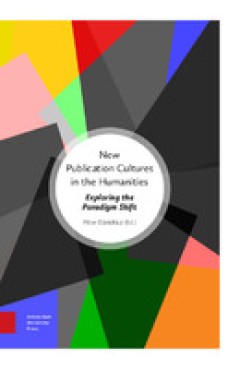
New publication cultures in the humanities : exploring the paradigm shift
The changes we have seen in recent years in the scholarly publishing world - including the growth of digital publishing and changes to the role and strategies of publishers and libraries alike - represent the most dramatic paradigm shift in scholarly communications in centuries. This volume brings together leading scholars from across the humanities to explore that transformation and consider t…
- Edition
- -
- ISBN/ISSN
- 9789089645647
- Collation
- 211 p.
- Series Title
- -
- Call Number
- 070.5797 NEW n
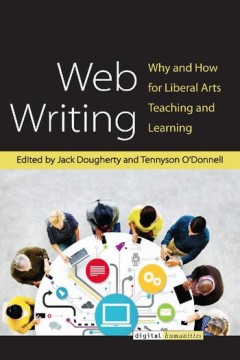
Web writing : why and how for liberal arts teaching and learning
Teaching writing across the curriculum with online tools
- Edition
- -
- ISBN/ISSN
- 9780472072828
- Collation
- xv, 257p. : ill.
- Series Title
- -
- Call Number
- 302.231 WEB w

The future of scholarly publishing : open access and the economics of digitis…
The formal scientific communication system is currently undergoing significant change. This is due to four developments: the digitisation of formal science communication; the economisation of academic publishing as profit drives many academic publishers and other providers of information; an increase in the self-observation of science by means of publication, citation and utility-based indicato…
- Edition
- -
- ISBN/ISSN
- 9781928331537
- Collation
- ix, 277p. : ill.
- Series Title
- -
- Call Number
- 070.57973 FUT f
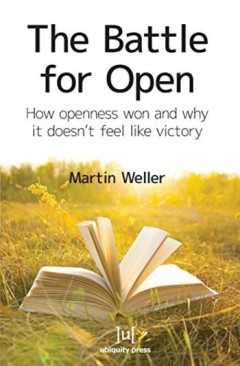
Battle for Open: How openness won and why it doesn't feel like victory
With the success of open access publishing, Massive open online courses (MOOCs) and open education practices, the open approach to education has moved from the periphery to the mainstream. This marks a moment of victory for the open education movement, but at the same time the real battle for the direction of openness begins. As with the green movement, openness now has a market value and is su…
- Edition
- -
- ISBN/ISSN
- 9781909188365
- Collation
- x, 232p. : ill.
- Series Title
- -
- Call Number
- 378.17344678 WEL b
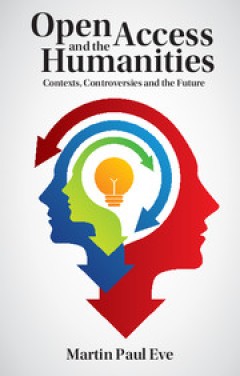
Open access and the humanities : contexts, controversies and the future
If you work in a university, you are almost certain to have heard the term 'open access' in the past couple of years. You may also have heard either that it is the utopian answer to all the problems of research dissemination or perhaps that it marks the beginning of an apocalyptic new era of 'pay-to-say' publishing. In this book, Martin Paul Eve sets out the histories, contexts and controversie…
- Edition
- -
- ISBN/ISSN
- 9781107484016
- Collation
- xv, 209p. : ill.
- Series Title
- -
- Call Number
- 001.30285 EVE o
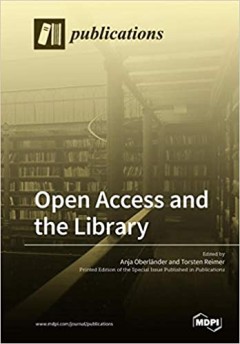
Open access and the library
Libraries are places of learning and knowledge creation. Over the last two decades, digital technology—and the changes that came with it—have accelerated this transformation to a point where evolution starts to become a revolution.The wider Open Science movement, and Open Access in particular, is one of these changes and is already having a profound impact. Under the subscription model, the…
- Edition
- -
- ISBN/ISSN
- 9783038977407
- Collation
- vii, 131p. : ill.
- Series Title
- -
- Call Number
- 026.3 OPE o

Shadow libraries : access to educational materials in global higher education
How students get the materials they need as opportunities for higher education expand but funding shrinks.From the top down, Shadow Libraries explores the institutions that shape the provision of educational materials, from the formal sector of universities and publishers to the broadly informal ones organized by faculty, copy shops, student unions, and students themselves. It looks at the hist…
- Edition
- -
- ISBN/ISSN
- 9780262535014
- Collation
- -
- Series Title
- -
- Call Number
- 070.5 SHA s

Ebooks in education : realising the vision
Ebooks are coming of age in education, as this exciting collection commissioned by Jisc demonstrates. Case studies, reflecting ebook success stories across the higher and further education sectors, include: - An innovative app to encourage ebook take-up in a Welsh college. - A partnership between a library and research centre to create open access monographs and midigraphs. - …
- Edition
- -
- ISBN/ISSN
- 9781909188396
- Collation
- vi, 137p. : ill.
- Series Title
- -
- Call Number
- 070.5 EBO e
 Computer Science, Information & General Works
Computer Science, Information & General Works  Philosophy & Psychology
Philosophy & Psychology  Religion
Religion  Social Sciences
Social Sciences  Language
Language  Pure Science
Pure Science  Applied Sciences
Applied Sciences  Art & Recreation
Art & Recreation  Literature
Literature  History & Geography
History & Geography